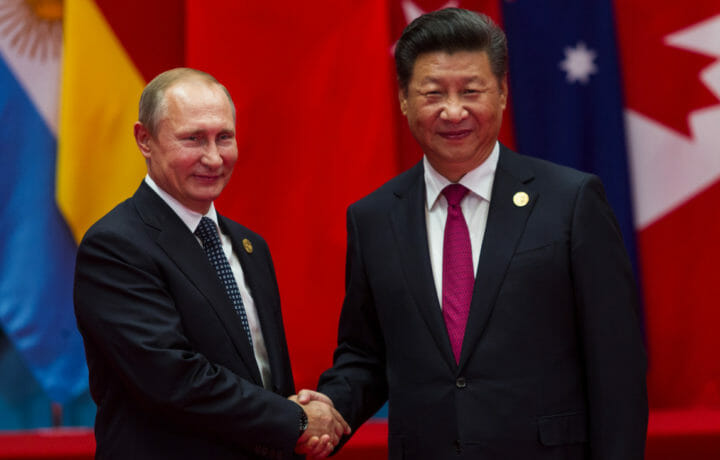While we are focused on the Russian-Ukrainian War unfolding in Eastern Europe, let’s not ignore what is happening in Eastern Asia. Expectedly, the Chinese are saying one thing and doing another. On February 25, Chinese President Xi Jinping presented Russian President Vladimir Putin with the desire to begin Ukrainian peace talks “as soon as possible”. Foreign Minister Wang Yi stated last week, “China is willing to continue playing a constructive role in urging peace talks and is willing when necessary to work together with the international community to launch required mediation.”
However, a few days earlier, Deutsche Welle (DW) broke a report that the Chinese requested the Ukrainian invasion be delayed until after the Olympics, making China appear to have knowledge of the invasion some time ago. How much other collaboration is taking place between Putin and his “dear friend” Xi Jinping?
Taiwanese Concerns
As the war rages on in Europe, the Taiwanese citizens are concerned for Ukraine. They want an end to atrocities and would like to help. Yesterday there was a rally for Ukraine in Taipei’s Liberty Square. Leadership at the rally stated Taiwan will not allow authoritarianism to expand and infringe upon the sovereignty of other countries, while protestors held signs stating “No war!,” “Taiwan with Ukraine,” “Russians against war,” and “We’re all Ukrainians.”
Taiwanese concerns are universal and well founded, as their own dragon lies 100 miles to the north, across the Taiwan Strait. For years, China has claimed self-ruled Taiwan as its own and has criticized the U.S. and other nations for their support of Taiwan, including U.S. arms sales and freedom of navigation exercises in the Taiwan Strait. Is the Ukraine War a playbook or study for China’s next moves regarding Taiwan? The Chinese are watching closely.
Taiwan’s democratically elected government desires peace but has repeatedly stated it will defend itself if attacked, and that only the Taiwanese people have the right to decide their future. On Sunday, a Chinese fighter jet entered Taiwan’s air defense identification zone (ADIZ), the second incursion already this month. This is not a new problem as in 2021, Chinese military aircraft entered the ADIZ on 961 occasions.
Sino-Russian Relationship
Similar to Russia’s demands of the West, China has imposed ‘demands’ on Taiwan, trying to constrain U.S. actions. In July of 2021, China told the U.S. that its red lines include Hong Kong, Xinjiang and Taiwan. China has stepped up its military and diplomatic pressure against Taiwan over the past two years, seeking to force the island to capitulate. Beijing continues to grow their explicit list of demands, as U.S. pressure continues. This path is very similar to that of Russian demands with neighboring Ukraine over the past years.
President Xi Jinping’s government will continue to outwardly distance itself from Russia’s offensive. However, they will avoid criticizing Moscow. Regardless of what is being said in the press, Sino-Russian relations are strong. As the West is sanctioning and condemning Russia, the Chinese Communist Party is telling citizens, like Russia, they are targets of U.S. harassment. Foreign Minister Wang publicly ruled out the possibility that diplomatic fallout from the war could undermine China’s growing alignment with Russia, stating, “No matter how perilous the international situation, China and Russia will … continuously advance with a new era of comprehensive strategic partnership.”




